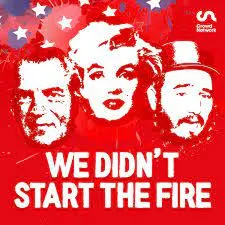 |
| M S Viswanathan, @ Mellisai Mannar, King of Melody at the Harmonium. |
Another instrument that I found strongly rooted among other traditional instruments in a traditional Indian (Carnatic and Hindustani) musical recital is the violin. We know that the violin was adapted and Indianised in the 18th-19th centuries.
The harmonium was developed in 1840 as a bellows instrument operated with a foot pedal to pump air. The church found it very useful because it was portable. When missionaries arrived to proselytise natives, they discovered it was very convenient for getting around.
 |
| The Legendary Dwarkin's Harmonium https://www.getbengal.com/details/harmonium-by-dwarkin-created-a-revolution- in-bengals-musical-journey-getbengal-story |
The Indian public also developed a liking for the instrument. They found it well-suited for Indian musical styles, which emphasised melody, unlike European styles that relied on harmony. Indians mostly sat on the floor when playing music, so the harmonium lost its legs and foot pedal. The bellows were operated by hand movements. Soon, the Indian harmonium — the small, portable, hand-pumped reed organ — became the preferred instrument for Carnatic and Hindustani musicians. Even Rabindranath Tagore used it in his academy, Santiniketan.
Musical composers of Tamil film songs from yesteryears, such as MS Visvanathan, Theva, Illayaraja, and even contemporary maestros like AR Rahman, are known to craft their masterpieces from scratch on these harmoniums.
Interestingly, this essential musical instrument, at times, conferred divinity status, was banned from the airwaves by All-India Radio for nearly 30 years between 1940 and 1971. Nationalists in the Quit India movement regarded the harmonium as a foreign intruder and a symbol of British cultural dominance. The call for a ban on the harmonium was led by Tagore and others who aimed to define and protect pure Indian musical heritage. In an independent India, Nehru sought to establish a 'pure' national music. Even harmonium players could not be on All India's payroll. Nevertheless, the harmonium remained a popular instrument throughout that era and remains significant today.
div class="sharethis-inline-share-buttons">






.jpeg)
.jpeg)
.jpeg)














